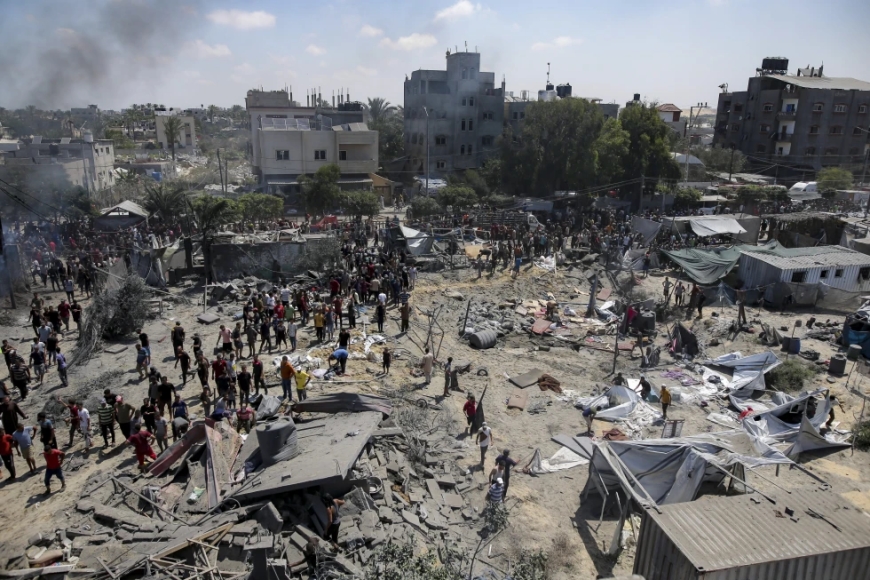Israel Confirms Death of Hamas Military Chief in Gaza Strike
The Israeli military announced on Thursday that it has confirmed the death of Mohammed Deif, the head of Hamas' military wing, in a July airstrike in Gaza. This announcement follows a series of high-profile assassinations, including the recent killing of Hamas' political leader, Ismail Haniyeh, in Tehran.

The Israeli military announced on Thursday that it has confirmed the death of Mohammed Deif, the head of Hamas' military wing, in a July airstrike in Gaza. This announcement follows a series of high-profile assassinations, including the recent killing of Hamas' political leader, Ismail Haniyeh, in Tehran.
These rapid developments have intensified diplomatic efforts by U.S., Egyptian, and Qatari mediators to negotiate a ceasefire in Gaza and prevent a broader regional conflict. The killing of Deif, alongside the assassination of Haniyeh and the death of a top Hezbollah commander in Beirut, has heightened concerns about escalating violence.
Hamas' Response
Hamas has not yet commented on the Israeli claim regarding Deif's death. A senior Hamas official, Izzat al-Risheq, stated that it is up to the group's military wing, the Qassam Brigades, to confirm or deny the news. Previously, Hamas had claimed that Deif survived the strike.
Netanyahu's Position
Israeli Prime Minister Benjamin Netanyahu declared that the death of Deif reinforces Israel's policy of retaliating against any aggression. "We will exact a very heavy price for any act of aggression against us from any arena," he stated, underscoring Israel's commitment to continuing its operations in Gaza.
The assassinations present Netanyahu with a potential political advantage, allowing him to claim significant blows against Hamas while also providing an opportunity to negotiate a ceasefire from a position of strength.
Impact on Ceasefire Talks
The elimination of Haniyeh and Deif, both senior Hamas figures, complicates ongoing ceasefire negotiations. Haniyeh had been a key negotiator in these talks, and his death has disrupted months of diplomatic efforts. Qatari and Egyptian officials have expressed frustration over the timing of the assassinations, which have been described as reckless and provocative.
Casualties and Humanitarian Impact
The Israeli strike on July 13, which targeted Deif, also resulted in the deaths of over 90 people, including displaced civilians in Khan Younis. The continued bombardment in Gaza has led to significant casualties, with Gaza’s Health Ministry reporting over 39,000 deaths and more than 91,000 injuries since the conflict began.
Regional Repercussions
In response to these events, Hezbollah leader Hassan Nasrallah has vowed a "well-studied retaliation" against Israel, signaling potential further escalation. The recent killing of Hezbollah commander Fouad Shukur in Beirut has also fueled fears of broader conflict.
International Appeals for Restraint
U.S. Secretary of State Antony Blinken has called for all parties to avoid actions that could exacerbate the conflict. Despite the diplomatic pressure, Netanyahu remains determined to continue the war until Hamas is destroyed, a stance supported by his far-right coalition partners.
The international community is now focused on preventing the situation from deteriorating into full-scale regional war, as tensions remain high and the path to peace appears increasingly fraught with challenges.













































